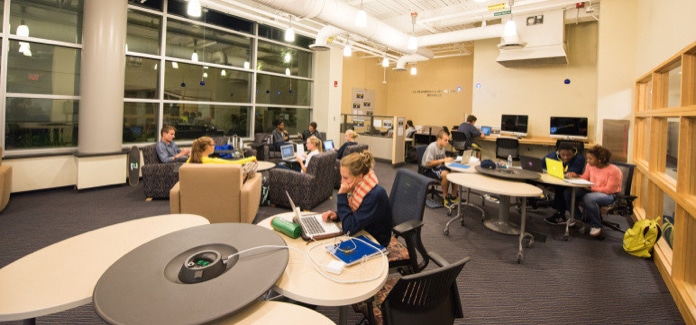
According to University of Michigan Ross School of Business Dean Scott DeRue, the future of MBA education can already be felt in the ‘experiential’ atmosphere running throughout business schools across the world.
“As we taught fundamentals, we taught the core concepts of business and then you learned how to put those into practice after you left business education, after you left your MBA program on the job.
“But I think the future of management education and business education is actually bringing those two worlds together … and accelerate our students’ development by not only teaching them the fundamentals through the case studies and the courses that they take, but having them leverage those fundamentals and put them into practice while they’re in school so that we could wrap the education around it with the coaching, with the mentorship and the feedback that we know is going to accelerate their development,” he said.
Top business schools in Australia have already started to adopt this approach to MBA education. In schools like AIM Business School, class facilitators are not only academically qualified but also have practical and extensive business experience as consultants. At Torrens University, the leadership courses are designed to foster the creation of leadership qualities in students through even the smallest actions.
In both examples, and many others across Australia, MBA students are given an education that is less ‘chalkboard and textbook’, and participate in a program that provides real-world case studies, business case projects and practical fundamentals that are delivered by real-world professionals under real-world conditions.
In a recent interview during a Harvard Business Review podcast, Mr DeRue said major business schools in China and America were quickly adopting experiential learning in their MBA programs to be the new norm, wrapping the fundamentals of core concepts into the ‘doing’.
“We can accelerate the growth and development of our MBAs or our business school students as we wrap the education around the experience.”
The University of Michigan, according to Mr DeRue, has unveiled 2018’s curriculum which requires MBA to student to work in 22 countries in 98 different cities for two months, full time.
“Not as an internship, but as a core part of their education,” Mr DeRue said. “Our vision is that every student who walks through our doors has the opportunity to start real companies, to run actual investment funds with real capital and we want them actually managing actual business functions in businesses embedded in their education.”
This new type of MBA education has shifted the way facilitators perceive the relationship not only between universities and their students, but also students and businesses.
“Both business students and business schools have thought about the MBA as a two-year transaction for way too long,” Mr DeRue said.
“Students think ‘I’m going to show up, I’ll get into a great school, I’ll get a great education, I’ll get a great job and that is the MBA’.
“Now your tuition is a subscription, it’s just upfront. We’ve actually started building businesses inside the business school.
“It fundamentally changes the calculus on the return on investment that one has because now it’s not only two years and your next job, it’s over the course of one’s life.
“We know it’s expensive and students have to, there’s an opportunity cost and all of that so, you want to maximise that ROI,” he said.
“Having these types of experiences that are going to better prepare you and ready you for not only day one on the job of today, but … give you the tools to make decisions in highly ambiguous situations, deal with complexity, build teams across functions, across geographies.
“Those are the skills that are going to enable students to thrive in the future.”











